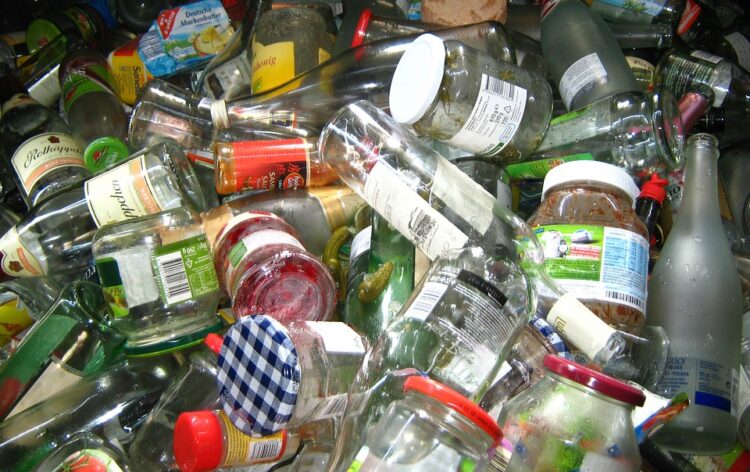[ad_1]
Revolutionizing Recycling: The Future of Sustainable Waste Management Systems
In today’s world, the issue of waste management and recycling has become more important than ever before. With the increasing global population and the rise of consumerism, the amount of waste being produced is reaching unprecedented levels. This has led to a growing concern about the environmental impact of waste and the urgent need for sustainable solutions.
The Importance of Recycling
Recycling is one of the key components of sustainable waste management systems. By recycling materials such as paper, plastic, glass, and metal, we can reduce the amount of waste sent to landfills and incinerators. This not only helps to conserve natural resources but also reduces greenhouse gas emissions and mitigates the harmful effects of pollution on the environment.
The Challenges of Traditional Recycling Methods
While recycling is a proven method for reducing waste and promoting sustainability, traditional recycling methods have their limitations. One of the main challenges is the lack of infrastructure and resources to properly collect, sort, and process recyclable materials. This has led to low recycling rates in many countries and a significant amount of recyclable materials ending up in landfills.
The Future of Recycling: Innovation and Technology
Fortunately, there are many innovative technologies and solutions that are revolutionizing the way we recycle waste. From advanced sorting systems to robotic solutions, these technologies are making it easier and more efficient to recycle materials and reduce waste. One example is the use of artificial intelligence (AI) and machine learning algorithms to improve the sorting and separation of recyclable materials.
Smart Bins and IoT
Another promising technology is the use of smart bins and Internet of Things (IoT) devices to optimize waste collection and recycling processes. These smart bins are equipped with sensors that can monitor the fill levels of the bin and schedule pickups only when necessary. This not only reduces the costs associated with waste collection but also ensures that recyclable materials are collected in a timely manner.
Chemical Recycling
Chemical recycling is another innovative solution that is gaining traction in the waste management industry. This process involves breaking down plastics and other materials into their basic chemical components, which can then be used to create new products. This not only helps to reduce the amount of waste sent to landfills but also promotes a circular economy where materials are reused and recycled indefinitely.
Addressing Common Questions About Recycling
There are many common questions and misconceptions about recycling that need to be addressed in order to promote sustainable waste management systems. Here are some of the most frequently asked questions about recycling:
What materials can be recycled?
Most materials such as paper, plastic, glass, and metal can be recycled. However, it’s important to check with your local recycling facility to see what materials they accept and how they should be sorted.
How can I recycle electronics and hazardous waste?
Electronics and hazardous waste require special handling and should not be disposed of in regular recycling bins. Many municipalities have special programs for recycling electronics and hazardous waste, so be sure to check with your local waste management authority for instructions on how to properly dispose of these materials.
What can I do to promote recycling in my community?
There are many ways you can promote recycling in your community, such as organizing recycling drives, educating others about the benefits of recycling, and supporting local initiatives that promote sustainable waste management practices.
The Benefits of Sustainable Waste Management Systems
Implementing sustainable waste management systems has many benefits, both for the environment and for society as a whole. Some of the key benefits include:
Reduced environmental impact
By recycling materials and reducing waste, we can significantly reduce the environmental impact of waste on the planet. This helps to conserve natural resources, reduce pollution, and mitigate the harmful effects of climate change.
Cost savings
Sustainable waste management systems can also lead to cost savings for businesses and municipalities. By recycling materials and optimizing waste collection processes, organizations can reduce their waste disposal costs and improve their bottom line.
Promoting a circular economy
By recycling materials and creating new products from recycled materials, we can promote a circular economy where resources are reused and recycled indefinitely. This helps to reduce the reliance on finite resources and create a more sustainable future for generations to come.
Conclusion
Revolutionizing recycling is essential for creating a more sustainable future for our planet. By implementing innovative technologies, educating the public about the benefits of recycling, and promoting sustainable waste management practices, we can reduce waste, conserve resources, and protect the environment for future generations. It’s time to rethink the way we approach waste management and embrace a more sustainable future for all.
[ad_2]












